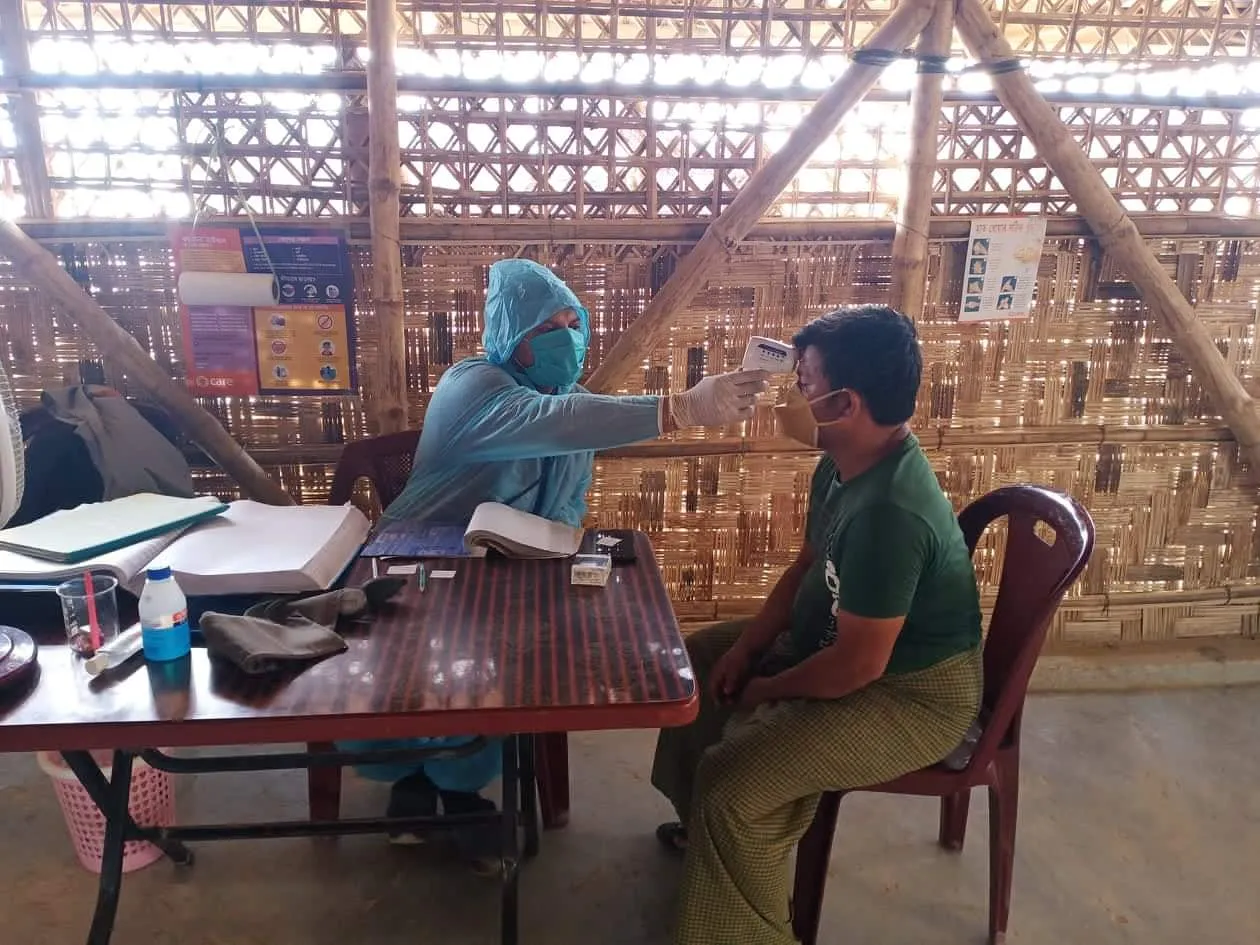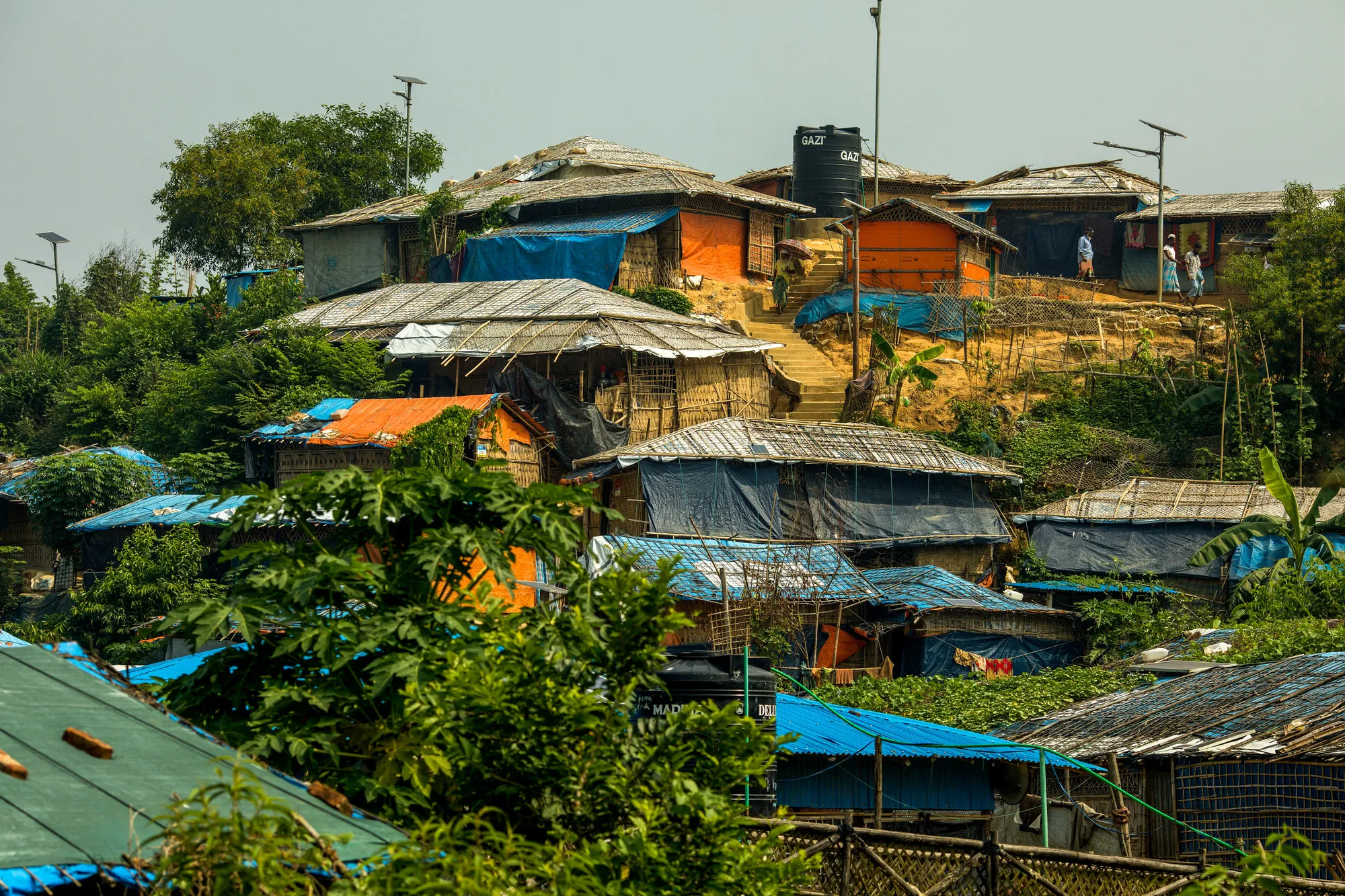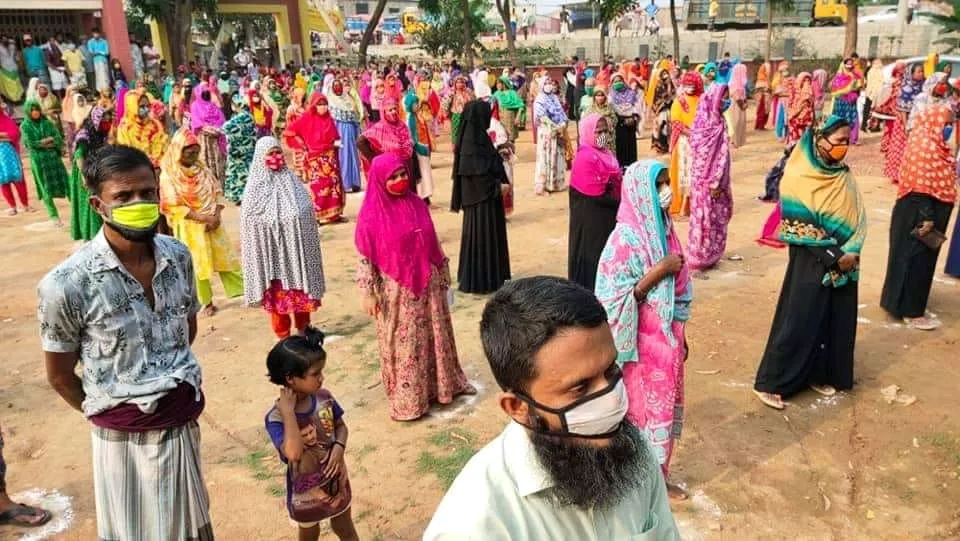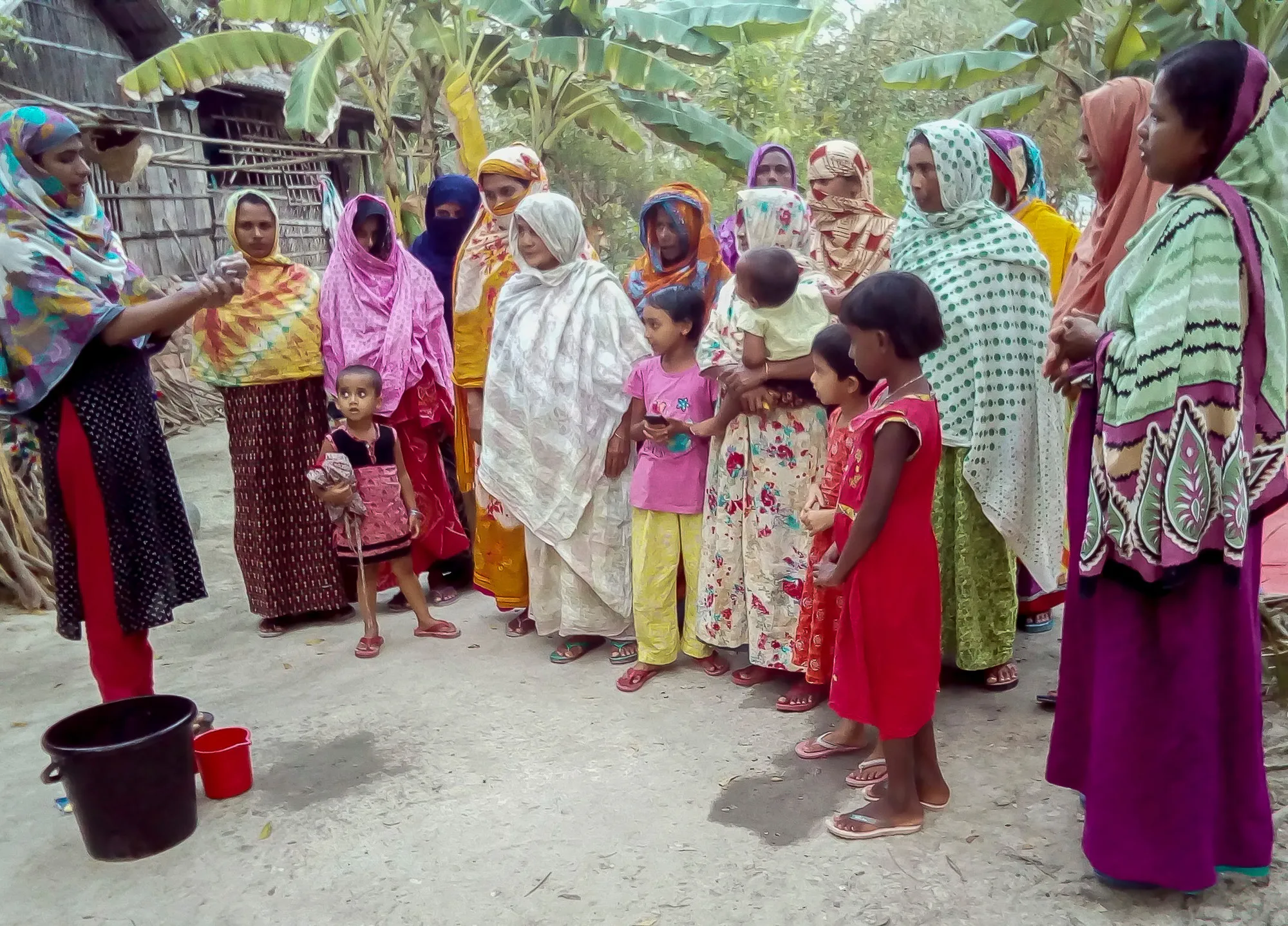MN: What are the gendered implications perhaps based on what’ve learned in the past with Ebola and analysis already taken place around COVID-19?
DM: [Gender] is the backbone of much of [CARE’s] work. In Cox’s Bazar, 80% of the people are women and girls so it is an absolute no-brainer that our interventions should be focused on women and girls. The household burden is shared more by women and girls, so when people are not able to go out, the burden on the family to earn a livelihood is bigger. Who sacrifices the meal first? Women and girls. That has a chain. When all this is happening, people still have reproductive health needs – women are still pregnant, and women are still delivering babies, so the prioritization of sexual and reproductive health becomes difficult. Whenever CARE is designing a response, we are concerting with the women and girls. There are youth groups with really vibrant girls, and however depressing the environment is, you talk to them for 15 minutes, you start feeling better. Many times, they give us advice on [where to put handwashing stations].
MN: Given all that, can you give us a piece of hope about what CARE is doing and can do moving forward?
DM: CARE has been in this region since before most of us were born, which means we know the system very well, we know the communities very well, we know our local NGO counterparts, and CARE is trusted. I go to many countries and people say they don’t know what’s happening, but they see the CARE logo on a Jeep and there’s a sense of comfort.
We’re starting our work by assessing what the communities need and what the gaps are. For instance, in Cox’s Bazar refugee camps, information is key. So, we have translated simple information for the community in posters, pamphlets, short videos, and radio messages. Most of CARE’s work is around bringing people together. We can’t do that anymore, so we’ve adapted by doing home visits and we are working with the Health Departments [to keep clinics safe] and decongest waiting areas.
Hope is definitely there, we just have to be patient. My worry is there is a lot of attention on [coronavirus] right now, but after some time we get used to it and we get empathy fatigue. If that happens in this crisis, it will be very detrimental because the livelihoods of many people have been affected.




